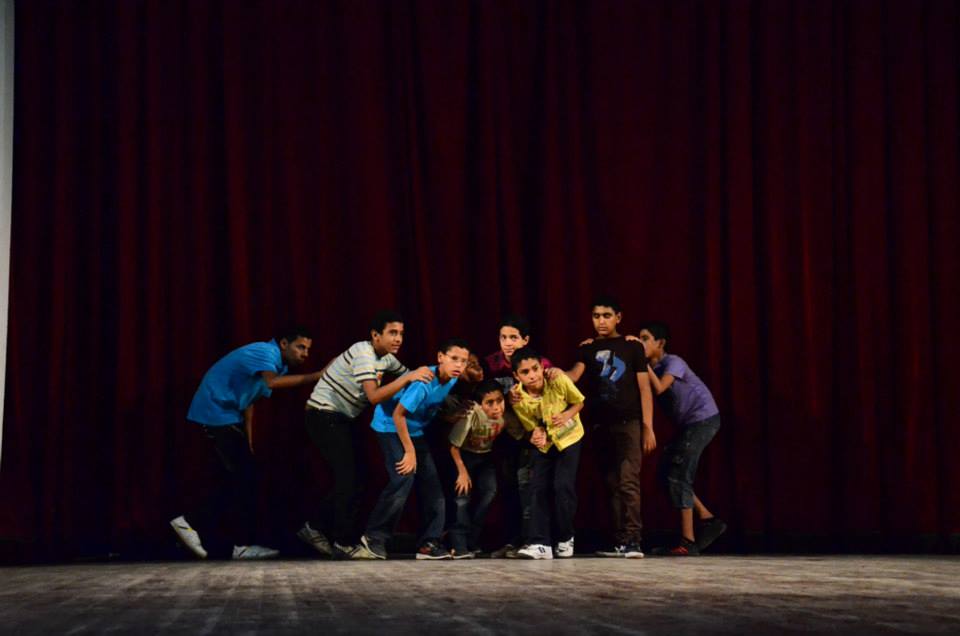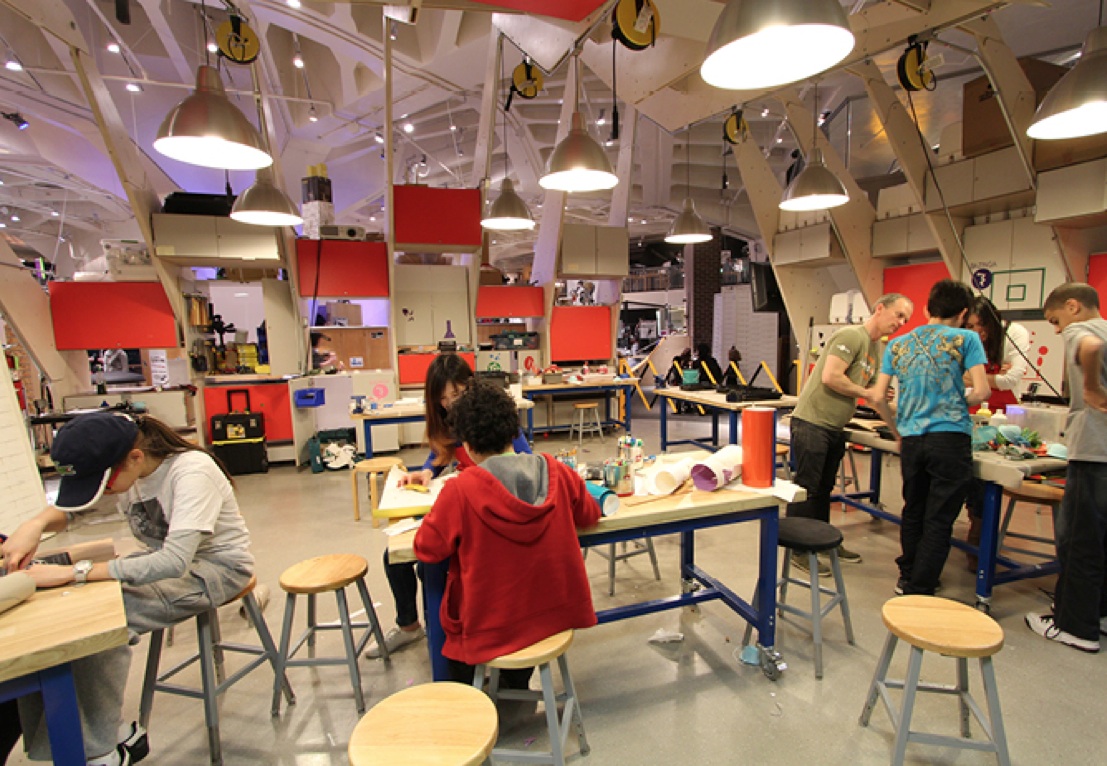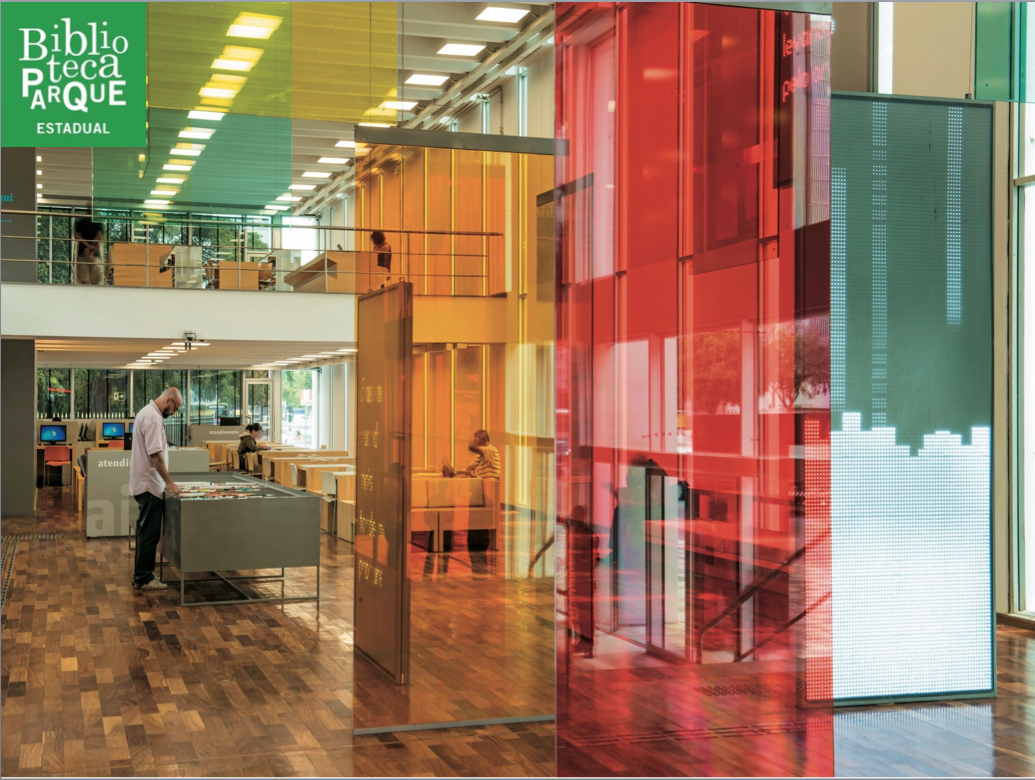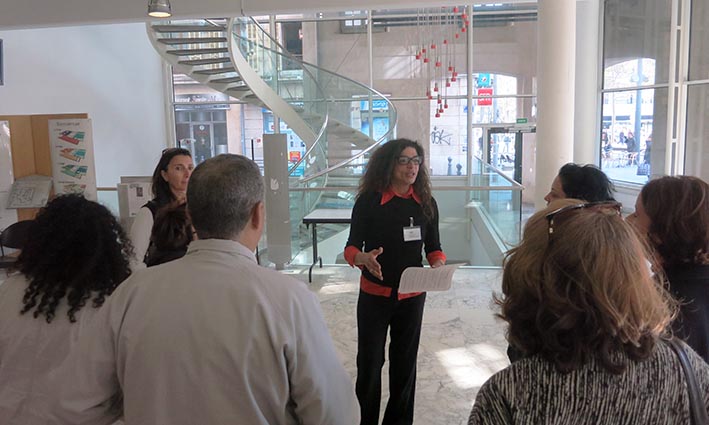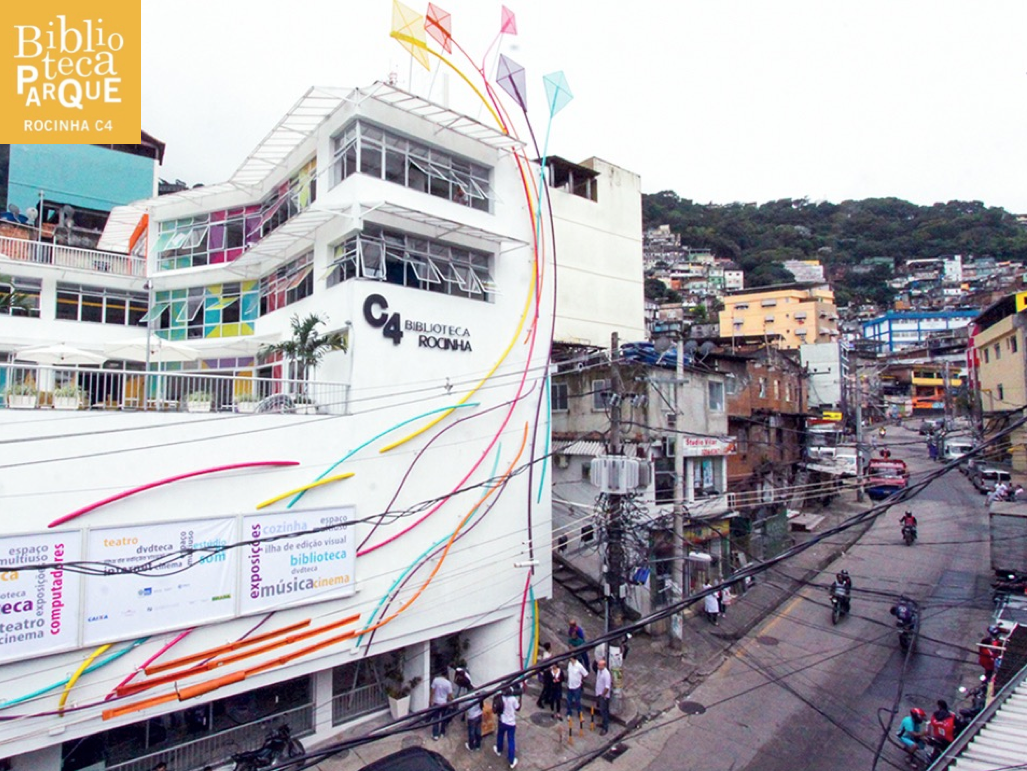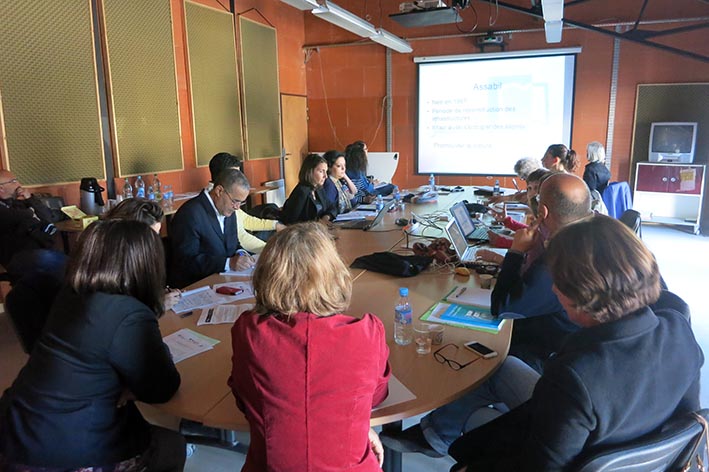In many cases, developping equipment dedicated to reading in an area that is not familiar with the practice is a challenge, because the project is not supported by habits nor requests.
In general, developping equipment dedicated to public reading is today part of a changing context toward « hybrid libraries ». They are « hybrid » because of printed and digital formats, because of public expectations, because of the arrangement of the equipment and facilities, and the new relationships between inside and outside.
To raise these issues, a workshop was organised in april 2015, an initiative by the City of Marseille, with the associations Assabil (Beyrouth) and MEDiaKitab (Marseille), under the cooperation agreements with the City of Marseille. It gathered different practitioners of libraries and cultural managers in Mediterranean area and Brazil. From the specific case of Assabil project to build a fourth library in the disadvantaged area of Tarik al-Jdideh. The aim was to share experiences and to consider existing practice of cultural action in disadvantaged areas.
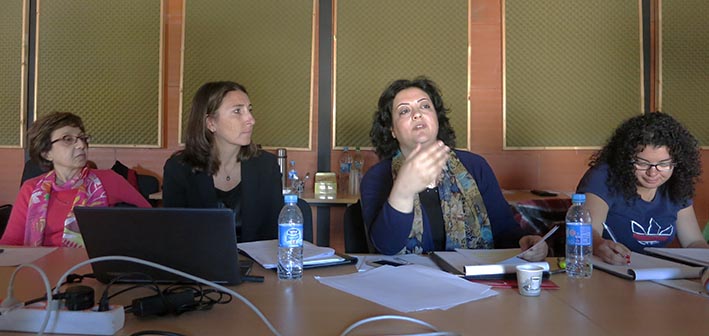
Workshop in Marseille/ Maud Stéphan, Rana Jubayli, Clarisse Chébli (Assabil), Rasha Rashad (Art and life Alexandria) © MEDiaKitab CD
The program included the introduction of the work and the stakes of Assabil project, the action of the libraries built in the favelas of Rio, and the association of Petit Lecteur in Oran, the experience of Marrakesh libraries, Art and Life project in Alexandria, and the new directions of the eight libraries of Marseille. The workshop included visits of several libraries in the city : l’Alcazar, le Merlan, la Grognarde, and an introduction to digital activities, including a digital book from « La Marelle ».
The exchanges stressed 3 main areas to consider for a new model of public reading.
Rethinking the links between libraries and users
A deep and long-lasting cultural action is a key issue for libraries, and espacially in disadvantaged areas. For instance, the decision to locate a library in the neighbourhood of Tarik al-Jdideh, in Beyrouth or in the favela of Manguinhos, in Rio contrasts with the lack of cultural habits and of public space. That is why, involving the local inhabitants is often a great challenge.
More than elsewhere, libraries must go well bey
ond offering book collection and cultural services. They must take into account cultural habits and generate new uses. Hence the importance of consultation, partnership with local organisations, involvement of local citizens, communication on any supports. In this way, libraries of Rio designed special communication campaigns to target drug dealers.
For some librarians, the new link with users is reflected in a shift in perspective : « the public is the collection ». The heritage role of libraries is put at the service of the social role. The process of mediation led by The Little Reader of Oran with travelling book suitcases, by the association Art and life in Alexandria, by Acelem association in Marseille or Assabil « kotobus » in Beyrouth are sucessful examples. In the North areas of Marseille, the team of M
erlan’s library focus on improvement in quality and increasing the reception individualization.
The new model also leads to promoting multidisciplinary amateur practices. For instance, libraries of Rio are fostering citizen groups, recreational and educational creative activities, and access to digital technology.The creative writing workshops are becoming a creative process laboratory, the PalavraLab. The managers do not hesitate to ask public figures from all the areas (literature, but also music, sport, fashion…) to inspire, through their testimony, the young users from favelas. The library of Marrakesh offers workshops for the exchange of skills with key resource persons and with local associations. In Marseille, associations such as La Fabulerie, or Fotokino put a great emphasis on experimentation.
Rethinking space, desacralizing books
The challenges of beauty and quality also lead to rethink the relationship to space. Architecture is requested to facilitate the public appropriation. In the libraries of Rio, beauty attracts visitors. The opening is also symbolised by meeting spaces, empty spaces, and spaces for contemplation. They bring lightness, a kind of balance with the gravity of knowledge accumulated over the pages… In this way, Assabil team plans to create a zen room in the future library.
An objective is to make books more accessible, less intimidating and serious. For Zoubida Kouti, from « Le Petit Lecteur d’Oran » : « a beak with past models should be made : the sacred book, kept in locked cupboards ».
Some may even accept some damages. Zoubida is pleased to note that the Arabic copy of Harry Potter has become slightly torn, as a consequence of a reading appetite, whereas the French copy remained fresh as new, because of a lack of readers. This opinion is not unanimous. Theft and damages might be considered as a failure, a lack of respect or a misunderstanding of the concept of public good. On the contrary, an other opinion consider appropriation as a transitory stage.
In the libraries of Marseille, some collections are reduced to be enhanced. In Rio some accomodations are inspired by bookshops.
Rethinking the organisation and the place in society
The new vision is also an invitation to rethink organisation, and first of all, the profession of librarian. The library requires skills in documentary techniques, but also in mediation, communication. There is a need for generalist profiles, but also for specialists in different areas : historian, sociologist, passionate about cinema, comic books, sport…
The exchanges highlited the need for multi-disciplinary teams to manage such projects and imagine different way to involve beneficiaries in the project, despite the difficulties.
In Marseille, the issue of widening the range of opening hours has been raised in a survey carried out by ABCD, but also by ARL.
An other issue was raised : the division of roles between cultural association that work to promote public reading through an important fieldwork and local public facilities, where they exist, with many examples in Beyrouth, Marseille, Oran.
The concrete measures to meet the cultural and education needs require a political will. The reflection’s conclusions called for a better dialogue connecting the strengths of public intervention and the associative resources, thanks to framework agreements that establish a stable, multi year partnership. The subject would deserve a deeper work with local elected members ans associative members to specify the challenges, priorities and means. It should be noted that each time a government lauch a book policy, there is a decisive effect on equipment, training, children publishing…
Many cultural operators suffer from Economic fragility. The issue would require inquiries on sustainable fundings, from national or European institutions, and on opportunities in the private sector. A key issue for reflection is children and young people publishing, that remains underdevelopped in many southern and eastern Mediterranean countries.
Libraries : an equipment which generates public space
This new model is sustained by a strong vision : « the poorer deserve the better », or in any case, quality. Vera Saboya was inspired by Colombian experience of parc libraries and by Darcy Ribeiro’s thoughts and claim the library as a « place of power » : « Favelas are often regarded as places of lack. These libraries regard favelas as places of power. We should have an emotional view on libraries. What and whose interest is being served ? Nowadays we cannot limit anymore libraries as places for reading and studying or even continuous training. A library is a central place. They are the starting point of a new impulse for knowledge. Through modern and democratic acces to digital tools, they will develop the freedom and creative intelligence of new generations. »
One of the key issues in cultural equipments is to create a neutral space, an open public space for every body, whatever the political commitment, the religious belief, the social background. Libraries offer space for studies, meeting, creativity, imagination, experimentation, expression, training and even « empowerment ». Freedom of thought lies at the heart of its work.
This belief was shared by all the participants gathered in Marseille. Each participant left enriched but fully aware of the challenges on the ground.
